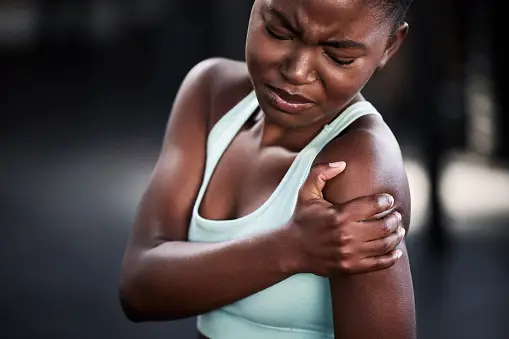
We will start by unraveling the primary function of the muscular system—movement. The ability to move our bodies is one of the defining characteristics of being alive. We will explore how our muscles work in harmony with our bones and joints, contracting and relaxing to produce the force required for movement.
But movement is only the beginning. Our muscular system also plays a crucial role in maintaining posture and stability. The muscles act as a supporting framework, keeping our bodies upright against the constant pull of gravity. We will delve into the intricate mechanisms that allow us to stand tall, walk with confidence, and maintain proper alignment.
The muscular system goes beyond physical actions; it contributes to our body’s internal functions as well. Heat production is one such remarkable function. Our muscles generate a significant amount of heat through their contractions, helping to regulate body temperature and ensuring our well-being in different environmental conditions.
Protection is yet another vital function of our muscular system. While often overlooked, certain muscles act as cushions, providing a layer of protection for our internal organs. We will discover how these muscles safeguard our vital organs and help maintain their position, reducing the risk of injury.
Movement
The primary function of the muscular system is to enable movement. Our muscles work in harmony with our bones and joints, allowing us to perform various physical activities. Whether it’s walking, running, or lifting objects, the muscles contract and relax, producing the force needed to execute these movements.
Posture and Stability
Muscles provide essential support for maintaining posture and stability. They help keep the body upright against the forces of gravity. By continuously adjusting muscle tone, our muscular system ensures that our body remains balanced and steady, preventing falls and maintaining proper alignment.
Heat Production
Did you know that muscles are responsible for generating a significant amount of heat in the body? Through muscle contractions, heat is produced, which helps maintain body temperature. This thermoregulation is crucial for our overall well-being, allowing us to function optimally in various environments.
Read More: The Role of DNA In Genetics In 2023
Protection
Beyond movement and stability, muscles also play a protective role. They act as a cushioning layer around vital organs, shielding them from external impacts and reducing the risk of injury. Additionally, certain muscles, such as the abdominal muscles, help protect the internal organs by providing support and maintaining their position.
Circulation and Lymphatic Flow
The muscular system contributes to the proper functioning of our circulatory and lymphatic systems. When muscles contract during physical activity, they facilitate blood flow through the arteries and veins, ensuring oxygen and nutrients reach different body tissues. Similarly, the rhythmic contractions of skeletal muscles assist in the movement of lymphatic fluid, aiding in waste removal and immune system function.
Facial Expressions and Communication
Our facial expressions are made possible by the intricate network of muscles in our face. These muscles allow us to convey emotions, communicate non-verbally, and connect with others on a deeper level. The muscular system in our face enables us to smile, frown, raise our eyebrows, and display a wide range of expressions that are essential for effective communication.
Metabolic Support
The muscular system plays a vital role in metabolism. Skeletal muscles, the largest component of the muscular system, have a high metabolic rate. Even at rest, they consume energy, contributing to the overall calorie expenditure of the body. Regular exercise and muscle-building activities help increase muscle mass, which in turn boosts metabolism and aids in weight management.
Conclusion
In conclusion, the muscular system serves as a fundamental component of our bodies, with various functions that go beyond mere movement. From providing stability and heat production to protecting vital organs and facilitating communication, the muscles play a crucial role in our daily lives. Understanding and maintaining the health of our muscular system is vital for overall well-being and a vibrant, active lifestyle.
Frequently Asked Questions (FAQs)
What happens if the muscular system is not functioning properly?
If the muscular system is not functioning properly, it can lead to muscle weakness, limited mobility, and difficulties in performing daily activities.
Can the muscular system be strengthened and improved?
Yes, regular exercise, strength training, and a healthy diet can contribute to the strengthening and improvement of the muscular system.
Are all muscles in the body under voluntary control?
No, there are both voluntary and involuntary muscles in the body. Voluntary muscles are under conscious control, while involuntary muscles, such as those in the digestive system, work automatically without conscious effort.
Can aging affect the muscular system?
Yes, aging can lead to a gradual loss of muscle mass and strength. However, regular exercise and physical activity can help slow down this process and maintain muscle health.
How can I take care of my muscular system?
Taking care of your muscular system involves maintaining an active lifestyle, engaging in regular exercise, staying hydrated, and consuming a balanced diet that includes essential nutrients for muscle health.











